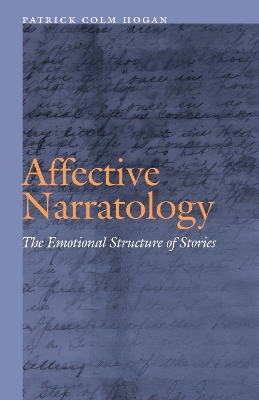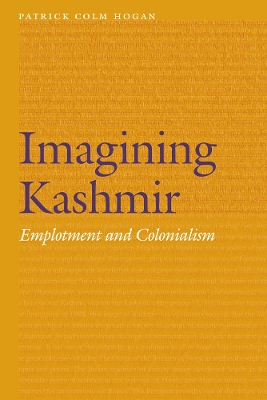Frontiers of Narrative
2 total works
Stories engage our emotions. We’ve known this at least since the days of Plato and Aristotle. What this book helps us to understand now is how our own emotions fundamentally organize and orient stories. In light of recent cognitive research and wide reading in different narrative traditions, Patrick Colm Hogan argues that the structure of stories is a systematic product of human emotion systems. Examining the ways in which incidents, events, episodes, plots, and genres are a function of emotional processes, he demonstrates that emotion systems are absolutely crucial for understanding stories.
Hogan also makes a case for the potentially integral role that stories play in the development of our emotional lives. He provides an in-depth account of the function of emotion within story—in widespread genres with romantic, heroic, and sacrificial structures, and more limited genres treating parent/child separation, sexual pursuit, criminality, and revenge—as these appear in a variety of cross-cultural traditions. In the course of the book Hogan develops interpretations of works ranging from Tolstoy’s Anna Karenina to African oral epics, from Sanskrit comedy to Shakespearean tragedy.
Integrating the latest research in affective science with narratology, this book provides a powerful explanatory account of narrative organization.
Hogan also makes a case for the potentially integral role that stories play in the development of our emotional lives. He provides an in-depth account of the function of emotion within story—in widespread genres with romantic, heroic, and sacrificial structures, and more limited genres treating parent/child separation, sexual pursuit, criminality, and revenge—as these appear in a variety of cross-cultural traditions. In the course of the book Hogan develops interpretations of works ranging from Tolstoy’s Anna Karenina to African oral epics, from Sanskrit comedy to Shakespearean tragedy.
Integrating the latest research in affective science with narratology, this book provides a powerful explanatory account of narrative organization.
During the 1947 partition of the Indian subcontinent, Kashmir—a Muslim-majority area ruled by a Hindu maharaja—became a hotly disputed territory. Divided between India and Pakistan, the region has been the focus of international wars and the theater of political and military struggles for self-determination. The result has been great human suffering within the state, with political implications extending globally.
Imagining Kashmir examines cinematic and literary imaginings of the Kashmir region’s conflicts and diverse citizenship, analyzing a wide range of narratives from writers and directors such as Salman Rushdie, Bharat Wakhlu, Mani Ratnam, and Mirza Waheed in conjunction with research in psychology, cognitive science, and social neuroscience. In this innovative study, Patrick Colm Hogan’s historical and cultural analysis of Kashmir advances theories of narrative, colonialism, and their corresponding ideologies in relation to the cognitive and affective operations of identity.
Hogan considers how narrative organizes people’s understanding of, and emotions about, real political situations and the ways in which such situations in turn influence cultural narratives, not only in Kashmir but around the world.
Imagining Kashmir examines cinematic and literary imaginings of the Kashmir region’s conflicts and diverse citizenship, analyzing a wide range of narratives from writers and directors such as Salman Rushdie, Bharat Wakhlu, Mani Ratnam, and Mirza Waheed in conjunction with research in psychology, cognitive science, and social neuroscience. In this innovative study, Patrick Colm Hogan’s historical and cultural analysis of Kashmir advances theories of narrative, colonialism, and their corresponding ideologies in relation to the cognitive and affective operations of identity.
Hogan considers how narrative organizes people’s understanding of, and emotions about, real political situations and the ways in which such situations in turn influence cultural narratives, not only in Kashmir but around the world.

